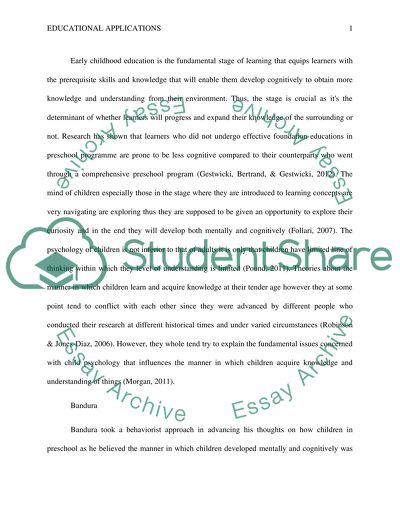Cite this document
(“Educational applications of Bandura, Piaget, Gissell, Erikson, and Research Paper”, n.d.)
Educational applications of Bandura, Piaget, Gissell, Erikson, and Research Paper. Retrieved from https://studentshare.org/education/1665254-educational-applications-of-bandura-piaget-gissell-erikson-and-vygotsky-at-early-childhood-sites-preschool-to2nd-grade
Educational applications of Bandura, Piaget, Gissell, Erikson, and Research Paper. Retrieved from https://studentshare.org/education/1665254-educational-applications-of-bandura-piaget-gissell-erikson-and-vygotsky-at-early-childhood-sites-preschool-to2nd-grade
(Educational Applications of Bandura, Piaget, Gissell, Erikson, and Research Paper)
Educational Applications of Bandura, Piaget, Gissell, Erikson, and Research Paper. https://studentshare.org/education/1665254-educational-applications-of-bandura-piaget-gissell-erikson-and-vygotsky-at-early-childhood-sites-preschool-to2nd-grade.
Educational Applications of Bandura, Piaget, Gissell, Erikson, and Research Paper. https://studentshare.org/education/1665254-educational-applications-of-bandura-piaget-gissell-erikson-and-vygotsky-at-early-childhood-sites-preschool-to2nd-grade.
“Educational Applications of Bandura, Piaget, Gissell, Erikson, and Research Paper”, n.d. https://studentshare.org/education/1665254-educational-applications-of-bandura-piaget-gissell-erikson-and-vygotsky-at-early-childhood-sites-preschool-to2nd-grade.


